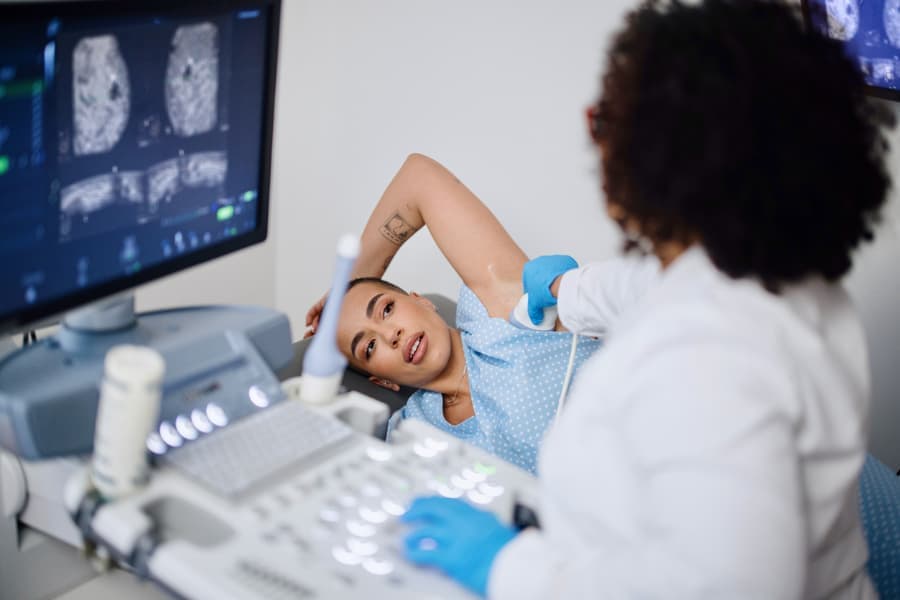While it is not known what exactly causes breast cancer, studies indicate there are risk factors that can contribute. Although some risk factors are outside of a person’s control, such as age, family history, and genetic mutations, certain behaviors and lifestyle choices may increase a person’s risk of developing the disease. Richmond University Medical Center in Staten Island, New York, specializes in providing patients with professional breast and women’s health services. Here, we outline lifestyle-related risk factors of the disease and what changes patients should make.
What Is Breast Cancer?
Breast cancer is a disease that affects one in eight women in the United States alone. It is the result of cells located in the breast growing out of control. Breast cancer can spread outside of the breast through blood vessels and the lymphatic system. When this occurs, the disease is said to have metastasized.
There are different kinds of breast cancer, depending on which cells in the breast are affected. The most common kinds of breast cancer are:
- Invasive ductal carcinoma: A type of breast cancer that begins in the ducts of the breast and then grows, reaching outside the ducts and into other parts of the breast tissue.
- Invasive lobular carcinoma: A type of breast cancer where cancer cells begin in the lobules of the breast and then spread to nearby breast tissues.
Less common types of breast cancer that can develop include Paget’s disease, medullary, mucinous, and inflammatory breast cancer.
Lifestyle Risk Factors People Can Change
A risk factor is anything that increases the threat or chances of getting a disease, such as breast cancer. Breast cancer risk factors can be associated with personal behaviors and therefore changed to reduce the risk. Lifestyle risk factors for breast cancer include:
Drinking Alcohol
There is a possible connection between alcohol consumption and breast cancer. Some studies show women who drink one alcoholic beverage a day increase their risk of developing breast cancer by 7% to 10%, and women who enjoy two to three alcoholic drinks per day increase their risk to about 20%.
Being Overweight or Obese
Women who are overweight or obese, especially after menopause, are at an increased risk of breast cancer. This is because having more fat tissue after menopause can result in increased estrogen levels, which enhances the risk of breast cancer. Additionally, obesity can lead to higher blood insulin levels, which have been known to contribute to some cancers like breast cancer.
Not Being Physically Active
Women who engage in regular physical activity can reduce their risk of breast cancer. More research is necessary to determine the exact amount of exercise required to reduce risk, but some studies suggest even as little as a couple of hours of physical activity a week can decrease the likelihood of experiencing breast cancer. A basic guideline for exercise per week is 150 to 300 minutes of moderate intensity or 75 to 150 minutes of vigorous intensity.
Not Having Children
The relationship between breast cancer and pregnancy is complex. Women who have not had children, or who had their first child after age 30, have a slightly higher risk of breast cancer overall. However, the risk of breast cancer is higher for about the first decade after having a child, and then becomes lower over time.
Not Breastfeeding
Women who have children and choose to breastfeed may lower their chances of getting breast cancer. A possible reason is breastfeeding reduces a woman’s total number of lifetime menstrual cycles.
Birth Control
Some birth control methods that use hormones have been linked to an increased risk of breast cancer. Once birth control is stopped, risks will eventually go back to normal, usually within 10 years.
Menopausal Hormone Therapy
Menopausal hormone therapy (MHT) is an effective method to relieve symptoms of menopause and help prevent osteoporosis. However, it has also been found to increase the risk of breast cancer, as well as increase the risk of heart disease, blood clots, and strokes.
Breast Implants
Women with breast implants may find themselves at a higher risk for breast cancer. Breast implants can also lead to other types of cancer in rare cases.
Breast Cancer Education and Services at Richmond University Medical Center
Women who believe they are at high risk of breast cancer, or who wish to gain more information about the disease, can turn to the medical professionals at Richmond University Medical Center. Located in Staten Island, New York, our physicians offer patients award-winning and compassionate services that address a host of concerns, including breast cancer and prevention. Contact us today to schedule an appointment and discuss breast cancer risk factors and prevention techniques.




